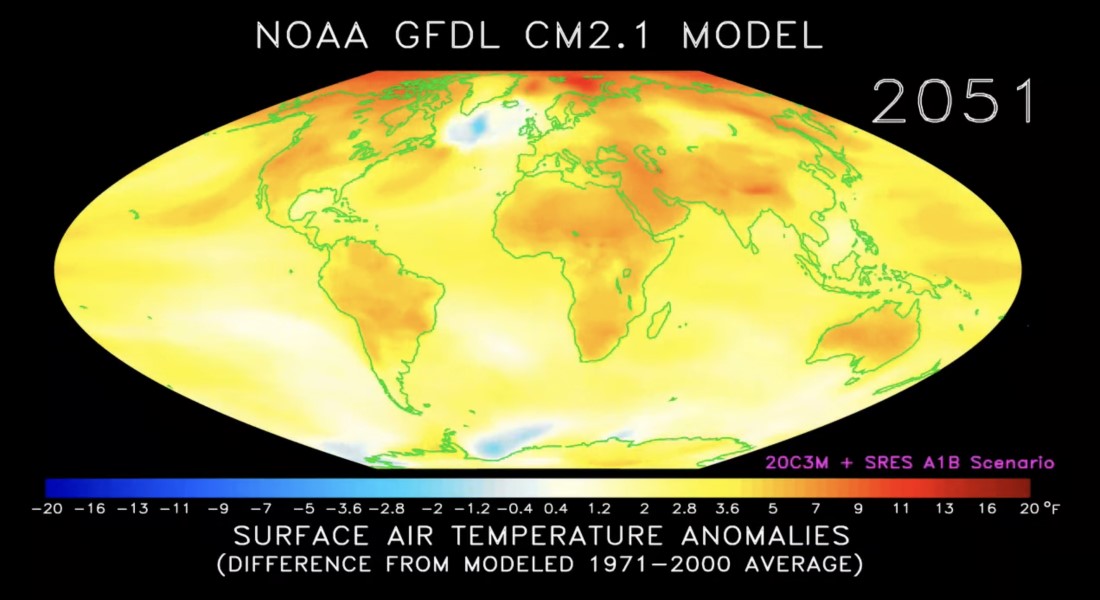Oracular modeling: Translation in Climate Forecasts (OMODE)
The overall ambition of the OMODE project is to examine how climate models create predictions about the future and how these predictions are translated and converted into actions that will influence political negotiations on green transition.

Despite their scientific foundation, climate models are functionally akin to oracles. In both cases, uncertain futures need to be interpreted, translated, and performed in order to shape societal and behavioural changes.
The OMODE project examines how climate models' predictions about the future are converted into action through effective translations, including the use of visualisation, and how such translations impact political negotiations on green transition.
The aim of the OMODE project is ultimately to design a model for translating the scientific data of climate models into concrete social action proposals.
The examination of the climate models' future predictions is done by following two examples of climate modelling: the Allen Institute for AI (Seattle), which models complex simulations of future climate, and the ASEAN Center for Energy's (Jakarta) modelling of Southeast Asia's energy systems.
The project will combine ethnographic fieldwork at Danish institutes for big data climate modelling and the ASEAN Center for Energy with collaborative research with the Danish think tank CONCITO and with the organisation Danish Design Centre.
Funded by:
Oracular modeling: Translation in Climate Forecasts (OMODE) has received a three year funding from Independent Research Fund Denmark.
Project: Oracular modeling: Translation in Climate Forecasts (OMODE)
Period: September 2023 - August 2026
Contact
Cecilie Rubow
Associate Professor
Department of Anthropology
E-mail: cecilie.rubow@anthro.ku.dk
Phone: +45 35 32 35 68
